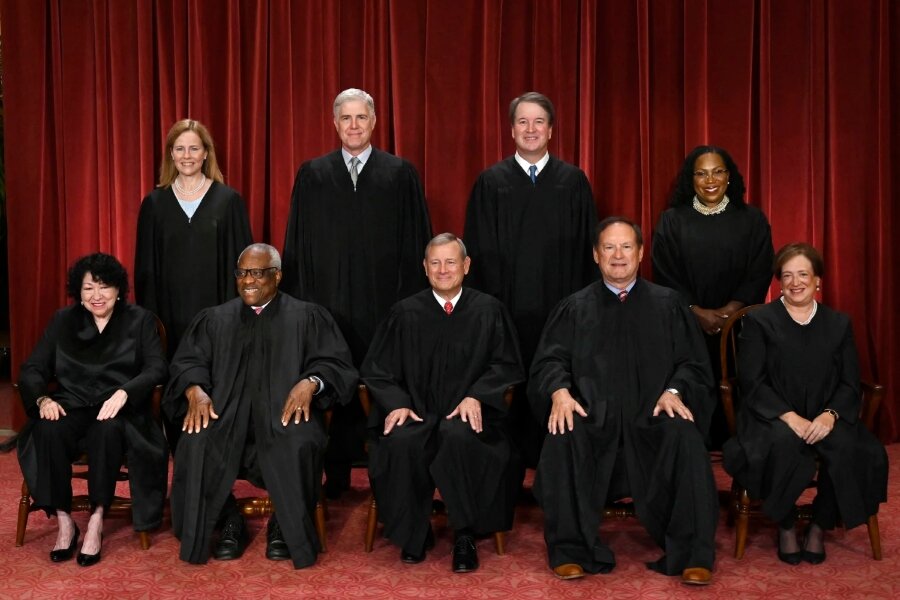The U.S. Supreme Court is set to issue its final opinions on July 1, marking the end of the court’s current term.
The most significant and controversial decision involves whether former President Donald Trump should be granted immunity from prosecution regarding election-related criminal charges filed by special counsel Jack Smith.
“At that time, we will announce all remaining opinions ready during this term of the court,” Chief Justice John Roberts stated from the bench on June 28.
Other remaining cases include Republican-backed laws in Florida and Texas aimed at limiting social media companies’ ability to regulate content they find objectionable, a challenge by a North Dakota convenience store to a government regulation on debit card “swipe fees,” and more.
In the Trump case, the former president’s attorneys have argued that former U.S. presidents should have broad immunity from criminal charges for certain actions taken while in office. The Trump appeal has effectively brought the special counsel’s case, which was filed in Washington, and it is unlikely to go to trial before the November election.
During oral arguments in April, some Supreme Court justices seemed to support the Trump attorneys’ arguments that he should have some degree of protection. However, many justices were skeptical of the claim that he should have “absolute immunity.”
Lower courts have dismissed the former president’s immunity arguments. U.S. District Judge Tanya Chutkan, overseeing the Trump case, stated earlier this year that the presidency “does not confer a lifelong ‘get-out-of-jail-free’ pass.” Additionally, a three-judge panel in the U.S. Court of Appeals rejected the former president’s claims, arguing that granting such immunity would violate the Constitution’s separation of powers clause.
At a hearing in April, Chief Justice Roberts expressed concerns about the appeals court ruling that dismissed the former president’s immunity claims. He noted that the court did not provide a detailed analysis of whether it believed the indictment targeted Trump’s official actions or his private conduct.
Chief Justice Roberts contended that the lower court essentially stated, “A former president can be prosecuted because he’s being prosecuted.” He questioned, “Why shouldn’t we either send it back to the Court of Appeals or issue an opinion making clear that that’s not the law?”
Justice Brett Kavanaugh said that the case “has huge implications for the presidency, for the future of the presidency, for the future of the country.”
Some of the other justices seemed more inclined to side with the special counsel’s team, indicating that the Trump trial should proceed.
“The Framers did not put an immunity clause into the Constitution. They knew how to,” Justice Elena Kagan said. “And, you know, not so surprising, they were reacting against a monarch who claimed to be above the law. Wasn’t the whole point that the president was not a monarch and the president was not supposed to be above the law?”
Prosecutors argued to the Supreme Court that the indictment includes private actions that warrant the case proceeding to trial without delay.
“The president has no functions with respect to the certification of the winner of the presidential election,” Michael Dreeben, a lawyer on Mr. Smith’s team, told the justices at the time.
“So it’s difficult for me to understand how there could be a serious constitutional question about saying ‘You can’t use fraud to defeat that function, you can’t obstruct it through deception, you can’t deprive millions of voters of their right to have their vote counted for the candidate who they chose,'” he added.
The 2024–2025 Supreme Court term is set to begin in October. Following the July 1 session, the court will be on recess until then, although justices can still issue rulings using the emergency docket.
UPDATE: Court finds presidents entitled to ‘absolute immunity’ from prosecution for official acts.
Share your thoughts by scrolling down to leave a comment.













